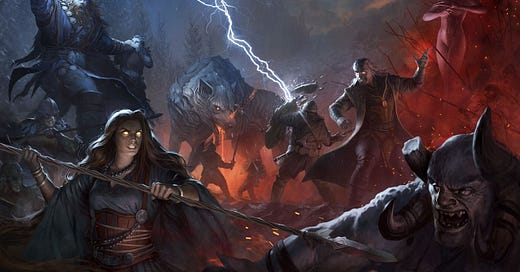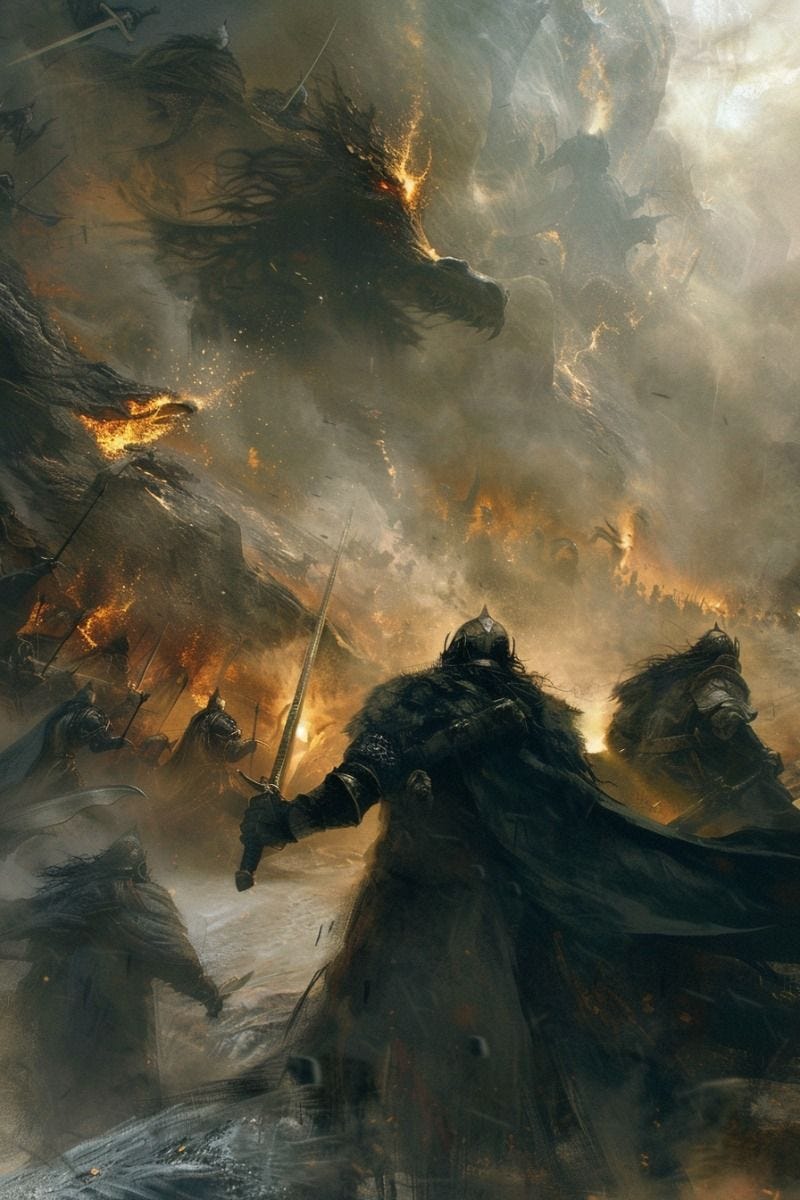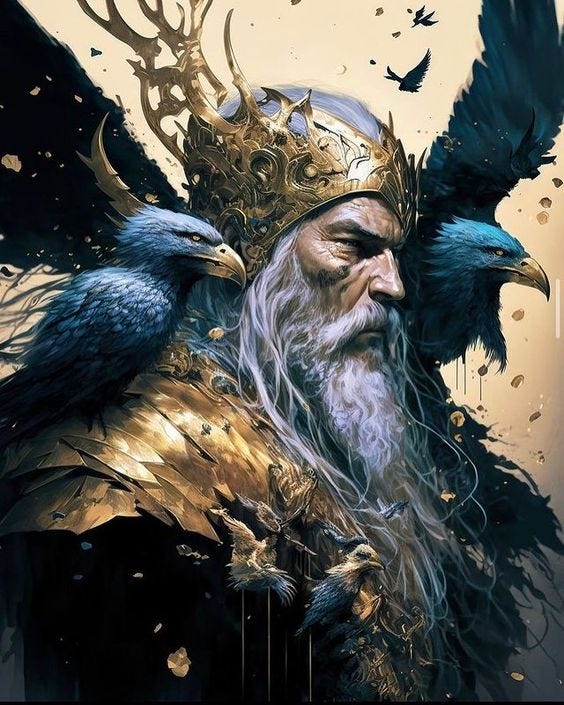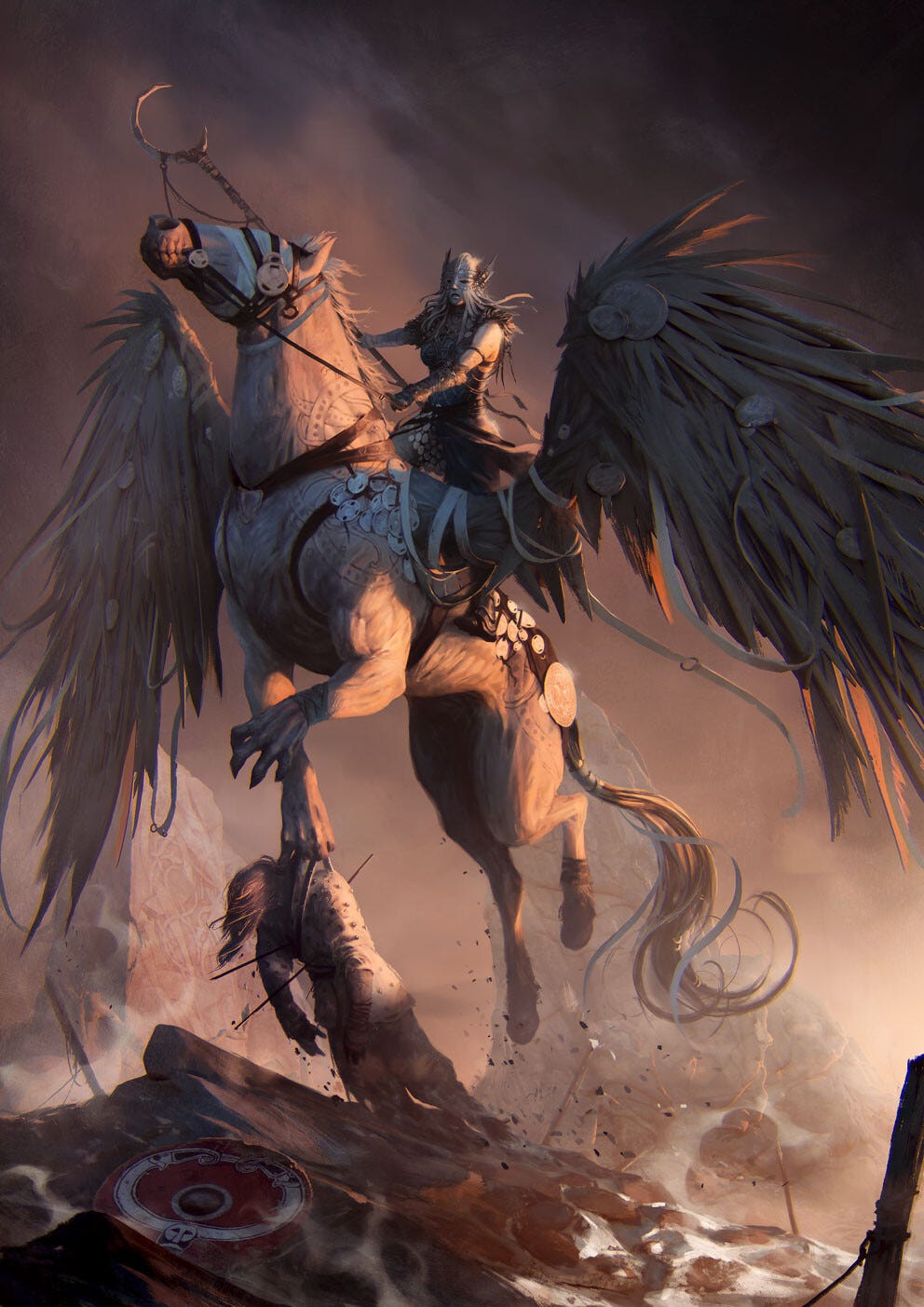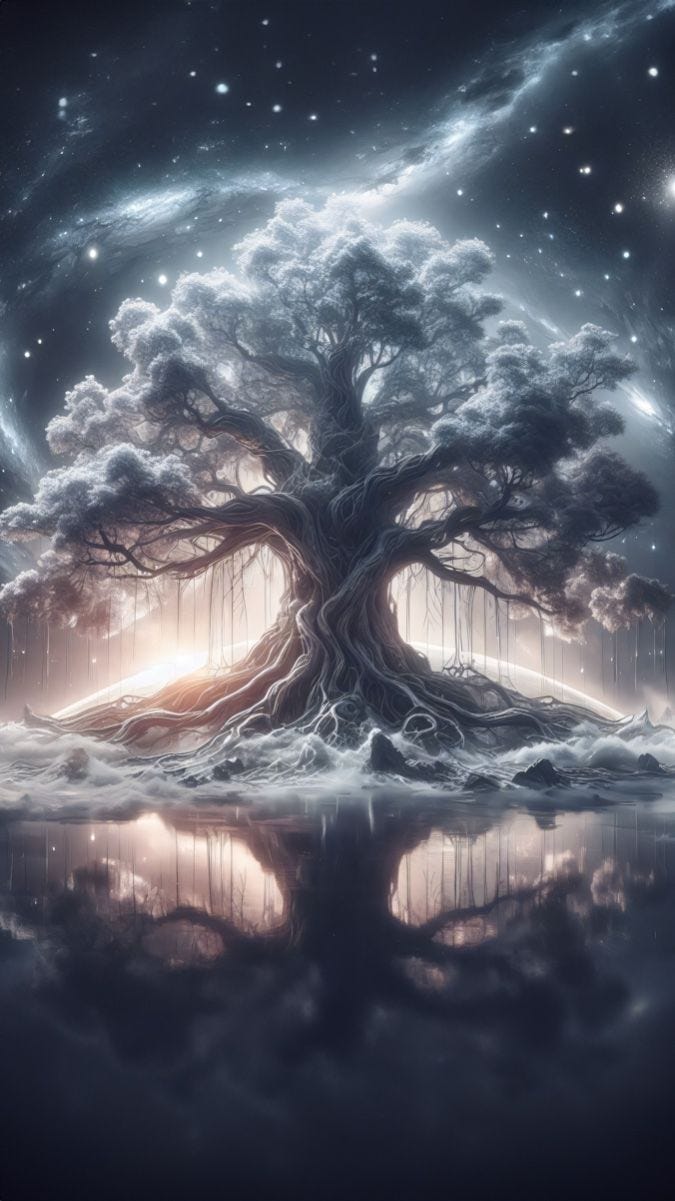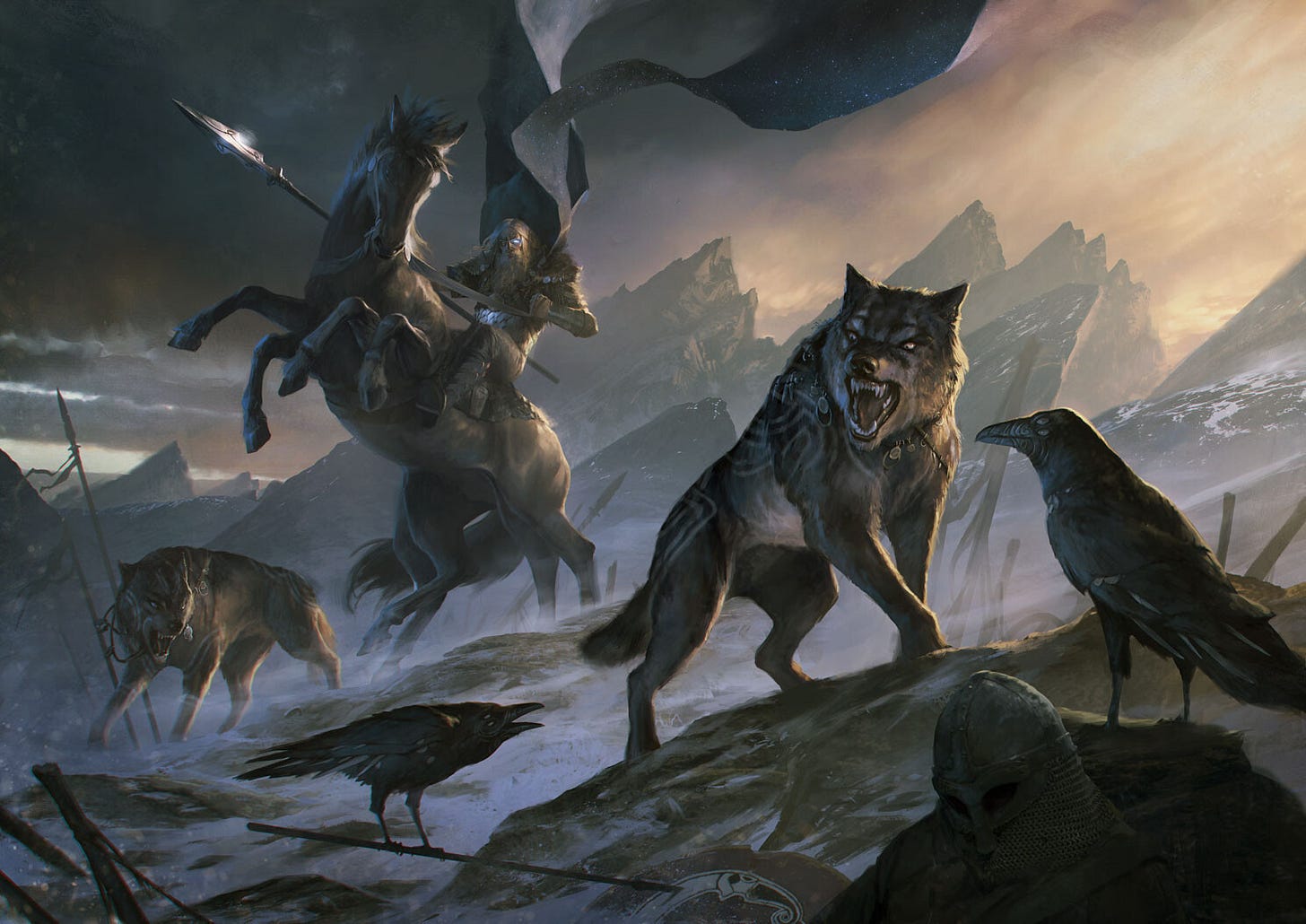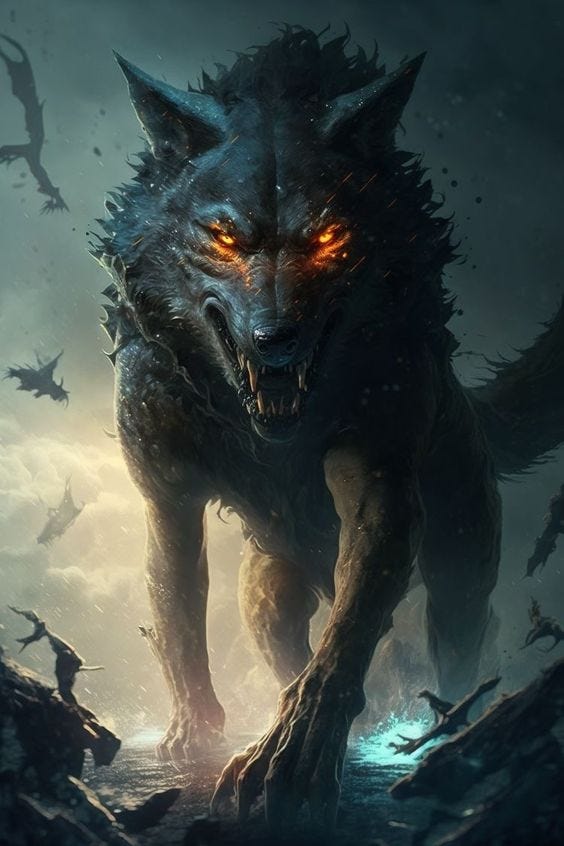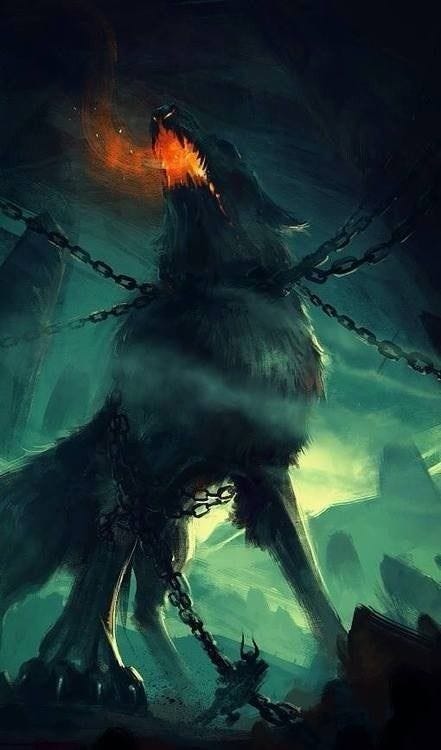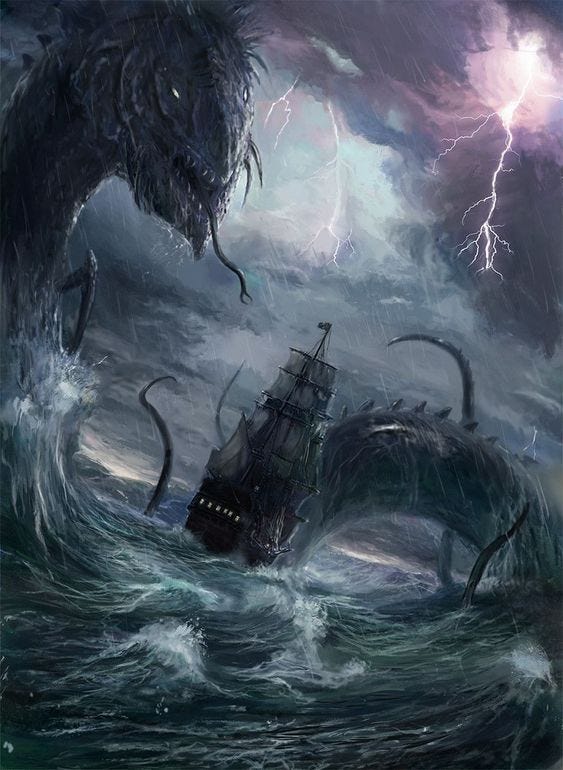In the ancient mists of time, when the world was young and the gods still walked among mortals, a prophecy was whispered through the ages, shrouded in mystery and foreboding. It spoke of the end of days, a twilight of the gods, known as Ragnarök.
Gather around me then, warriors and shield maidens, as I sing for you the epic saga of the end of days; and as the fire crackles and the shadows dance upon your faces, the flames will weave their ancient magic. Pour out the ale so we can feast like the heroes in the Halls of Valhalla. For the night is young, and a storm is coming; it might be the harbinger of the Great Night and the Final Winter, when the beasts awaken and our world shall be devoured.
Lean closer, for this is no ordinary story. It is a prophecy whispered since the dawn of time, a legend of fate and fury, of destruction and rebirth. As the fire crackles and the night deepens, let your minds wander to the farthest reaches of imagination, to the realms where gods and monsters tread. This is the tale of Ragnarök, the twilight of the gods. Listen well, for the threads of fate are about to unravel, and the secrets of the cosmos are poised to be revealed.
This is tale not merely of gods and monsters, but of fate and fury, of the end and the beginning intertwined. In the forgotten echoes of eternity, when the world was young and the divine walked among mortals, a whisper began to stir. It spoke of a time when the heavens would tremble and the earth would shatter, a time when even the mightiest would fall and the very fabric of reality would be torn asunder.
Picture the realms of Asgard, Midgard, and beyond, where the threads of destiny weave an intricate pattern. Hear the distant rumble of thunder, the hiss of serpents, and the howling of wolves. Feel the icy breath of Fimbulwinter, the forewarning of the doom that awaits. The word “Ragnarök” comes from Old Norse Ragnarök, “Fate of the Gods.” In an apparent play on words, some pieces of Old Norse literature also refer to it as Ragnarøkkr, “Twilight of the Gods.”
In Asgard, the realm of the gods, whispers of the prophecy had long haunted the golden halls. Odin, the Allfather, sat upon his throne, his one eye ever watchful. He knew the signs; he had seen the visions. The death of his beloved Baldr, the harbinger of doom, had set the wheels of fate in motion.
The Allfather, in his relentless pursuit of knowledge, sacrificed himself to himself, hanging from the World Tree, Yggdrasil, for nine nights. In this agony, he gained the wisdom of the runes, foreseeing the horrors of the coming end. His ravens, Huginn and Muninn, brought news from across the realms, their caws echoing the grim tidings.
The grave news was that the Norns, those inscrutable spinners of fate, decreed it: there shall come a Great Winter, unlike any other the world has yet seen. The biting winds will blow snows from all directions, and the warmth of the sun will fail, plunging the earth into unprecedented cold. This winter shall last for the length of three normal winters, with no summers in between; and no hope.
Mankind will become so desperate for food and other necessities of life that all laws and morals will fall away, leaving only the bare struggle for survival. It will be an age of swords and axes; brother will slay brother, father will slay son, and son will slay father. The wolves Skoll and Hati, who have hunted the sun and the moon through the skies since the beginning of time, will at last catch their prey. The stars, too, will disappear, leaving nothing but a black void in the heavens. Yggdrasil, the great tree that holds the cosmos together, will tremble, and all the trees and even the mountains will fall to the ground.
Far to the north, in the land of the giants, the Giant wolf Fenrir strained against his bonds. Forged by the gods with the magical ribbon Gleipnir, these chains held fast for centuries. Yet, as the days grew shorter and colder, Fenrir's strength grew. His eyes burned with a vengeful light, and with a final, earth-shaking roar, he shattered his fetters. The world trembled as the beast was set free, his rage a harbinger of the chaos to come.
The chain that has been holding back the monstrous wolf Fenrir will snap, and the beast will run free. Jormungand, the mighty serpent who dwells at the bottom of the ocean and encircles the land, will rise from the depths, spilling the seas over all the earth as he makes landfall.
Beneath the stormy waves, Jörmungandr, the Midgard Serpent, began to stir. Encircling the world, his monstrous form writhed, causing tidal waves and earthquakes. His venomous breath poisoned the air, a forewarning of the devastation he would bring. The seas churned with his awakening, a portent of the great battle that lay ahead.
These convulsions will shake the ship Naglfar (“Nail Ship”) free from its moorings. This ship, which is made from the fingernails and toenails of dead men and women, will sail easily over the flooded earth. Its crew will be an army of giants, the forces of chaos and destruction. And its captain will be none other than Loki, the traitor to the gods, who will have broken free of the chains in which the gods have bound him.
Keep reading with a 7-day free trial
Subscribe to TheBlackWolf’s Lair to keep reading this post and get 7 days of free access to the full post archives.

